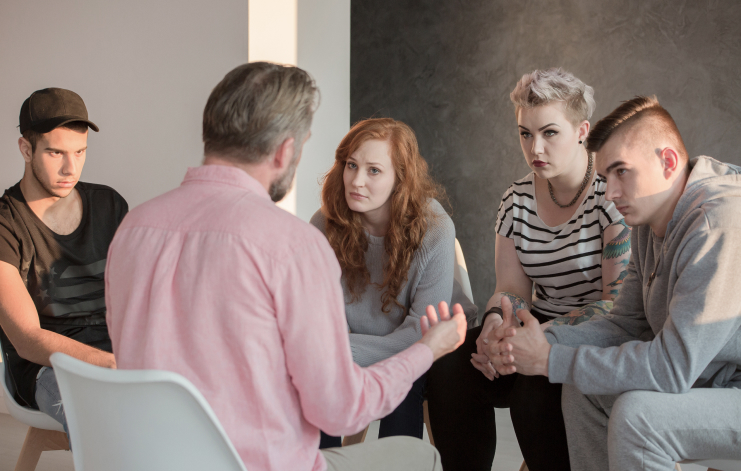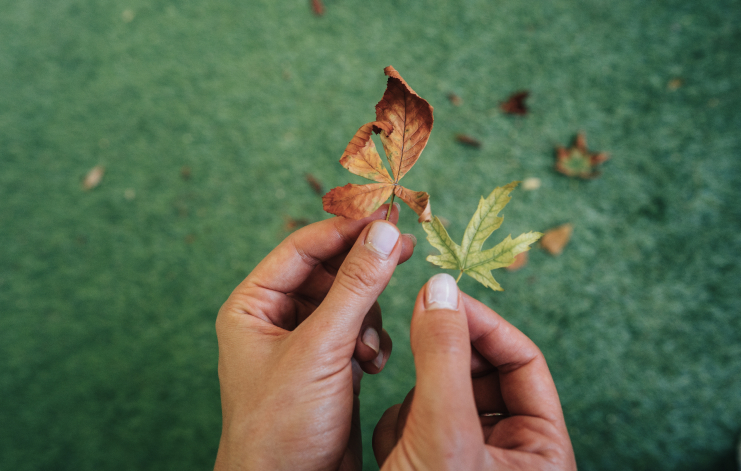Your independent steps from the codependence
Start now with the 12-Step Programme This programme will give you the opportunity to love yourself and the others instead of saving them and being saved. Take your independent steps from codependence The “12 Steps” programme is a programme for spiritual growth. These are steps of insight, steps of courage, steps by which one discovers a fundamentally new life.

What to do first
One acknowledges that they are powerless to deal with the problematic behaviour of other people, with their addictions - alcohol, drugs, gambling, computer. They acknowledge that their lives have become unmanageable.
It is the right moment when we cease to resist the truth. So far we have tried to do the impossible. But now we realize this and make the sensible decision to stop trying to do something we have no way of doing, no matter how hard we try.
By acknowledging our helplessness with respect to what we really have no power over, we gain a power that is ours by right – the power to change ourselves and our own lives.
We seek help from a specialist.
Everyone has the right to privacy and happiness. We are convinced that a force higher than us can restore our balance
We use the personal pronoun I and the positive form:
“I came to this world in order to experience love and happiness.” “I have plans and intentions to carry out.”
We choose to give our will and life into the hands of God as we understand Him. We choose to trust a Higher Power and believe that we are entitled to happiness.
We must believe, even if we are atheists, that we will not be left alone with our problem, but there is a Higher Power that can help us, as long as we want it. This will also contribute to building a positive image of ourrself and a vision for further fulfilling life.
We reconsider deeply, seriously and honestly our behaviour so far and make a bold moral balance.
We must look fearlessly at ourselves, without self-hatred or self-condemnation, but with love, honesty and concern for our own person. We may even find that our real moral problem is that we do not love each other enough or even hate each other. We have to get to the root of all other problems, including the sense of guilt. We must also look at our positive qualities, to pay attention to our pain and anger. We undertake a comprehensive study of our personality and the role we play in our own lives. In this way we will be able to unload the well-deserved feeling of guilt, to remove the undeserved guilt, to accept everything we call our own personality and to set the beginning of growth and change.
The readiness to undertake self-analysis brings light and new confidence.
We acknowledge and name the problem in front of another person.
“I need specialized help.”
We confess before God, before ourselves and before any other human being the true nature of our problem and transgressions.
Confession is good for the soul. Nothing can compare to it. From now on we no longer need to hide. We share our most horrible and shameful secrets with a person who is skilled in listening to and hearing the confessions of the fifth step. We tell someone how affected and angry we feel. Someone listens to us. Someone is worried about us. We receive forgiveness and the wounds begin to heal. We forgive ourselves. That is why this step is so liberating.
It is time to work on our mental attitudes and eliminate flaws in our character.
We are fully prepared to take the path of spiritual development which will eliminate all these shortcomings of our character.
We work to get free of our shortcomings and pray for humility.
We make a list of all the people we have harmed in some way and we are ready to make it up to each of them.
We do our best to apologize and repay to these people except when it may hurt them or harm someone else.
We continue to examine ourselves and when we find that we have made a mistake - we openly admit it.
Through prayer, meditation and contemplation we change daily with trust in the Higher Power or God as we understand Him.
Relax. Separate. Meditate. Indulge in prayer. Think. Ask Him what He wants you to do. Ask Him to give you the opportunity to do so. Then leave things alone and watch what happens. In most cases His will is connected with an expedient, reasonable approach to life. It may happen that we come across a surprise. Learn to trust the Higher Power to whom you have entrusted your life. Strive to be aware of the way He works with us. Learn to trust yourself. God also works through ourselves.
Awakening the spiritual in ourselves as a result of the previous steps, we also try to convey this message to others, as well as to apply the learned principles in our own deeds.
This programme will give us the opportunity to love ourselves and others instead of saving them and being saved. Delivering the message does not mean that we will become preachers. The idea is that our lives will turn into light and we will learn how to spread it. No matter which area of our lives we should apply this programme to, it will produce results.
Problems

What is codependence?
A codependent is one who has allowed themselves to be influenced by another person’s behaviour and is obsessed with the idea of controlling that person’s behaviour.

Who suffers from codependence?
Codependent people show the following traits and behaviour:
- Uncertainty
- Exercising control
- Doubting themselves

Is codependence a disease?
Some experts believe that it is not. According to them, this is a normal reaction to abnormal people. Others argue that codependence is a disease that is both chronic and progressive. According to this concept, codependents want and need sick people around them to feel happy in an unhealthy way.

Stages that the codependent person goes through
Usually that person has grown up in an upset family and has mastered the rule that “caring” for others is a measure of self-worth.

How to overcome codependence?
What should we do if we feel that another person is the center of our world, that they are the cause of our existence and without them we cannot continue in life? Can we overcome the codependence? The answer to the latter is, “Yes, we can.”

Characteristics of Codependence
- Over-concern
- Low self-esteem
- Obsessive thoughts
- Controlling
- Denial
- Addiction
- Unstable borders
- Progressive move
